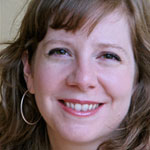nainam chindanti sastrani
nainam dahati pavakah
na caiman kledayantyapo
na sosayati matutah
I found out about my grapefruit-sized ovarian cyst in August.
At the time, I was viscerally terrified of “going under the knife”. To my relief, my doctors decided to wait for some other medical issues to resolve first. Six months later, I went to the ER in terrible pain, and it became clear that we couldn’t wait anymore. I went home to collect my things and sleep before my surgery, and turned to one of my favorite books, Paths to God by Ram Dass.
Ram Dass was once a Harvard Sociology professor named Richard Alpert. Then he dropped a lot of acid with Timothy Leary and discovered that he liked the experience of altered consciousness. Later he discovered that yoga and spirituality brought him to an even more expansive state. He acquired a guru, left/was fired from his teaching position, and embarked on a very different life from the one his parents originally mapped out for him.
I love reading Ram Dass for his humility, his humor, his authenticity, his lack of pretense. He is a passionate mystic, yet he came from the same milieu that I live in now: a comfortable suburb of a major American city. Dick Alpert was “one of us”, a well-educated, middle-class, conventional person, who evolved into something…different. Just like my students, who are mostly householders with traditional vocations, evolving through yoga.
Paths to God is a sort of Bhagavad Gita study guide. One anecdote in this book particularly speaks to me. Ram Dass explains that his mother and father had a tradition of exchanging a single red rose on their anniversary. On the day of his mother’s funeral, her casket was covered in roses, and as they wheeled it past the family pew, a single red rose fell at his father’s feet. Ram Dass says that his whole family, normally very conservative and “uptight”, agreed that their mother had sent their father one last rose. It’s a very beautiful moment.
Then everybody gets really concerned with how they’re going to preserve the rose. Ram Dass describes its journey: his father contacts a company who seals the rose in some kind of material that is guaranteed to preserve it forever. But it doesn’t quite work and after a few years, the rose starts to disintegrate. Then his father remarries and the rose gets hidden away. Ram Dass rescues it from the attic and keeps on his puja for a few years. Finally he moves and it gets lost in the shuffle.
You know this Helen Keller quote? “The best and most beautiful things in the world cannot be seen or even touched—they must be felt with the heart.” Lovely, yes? I don’t quite align with this because she uses a superlative; I think of spirit and matter as being on the same spectrum, rather than in a hierarchy. The material world has plenty of beauty and goodness in it (other people, ripe peaches, sunsets, cherry blossoms, Kandinsky paintings, Hatha yoga), and it’s not a competition. But I love the quote anyway, because it points to the idea that this world is more than what you can see and touch. The “more” isn’t better. But yeah, it’s more.
In Ram Dass’s story, his father loses sight of/falls out of touch with the more. Preserving the rose was a totally unsatisfactory attempt to preserve something unseen, untouchable: the connection of the heart in that marriage.
After my surgery, I thought a lot about what had happened to the material of my body. It had been cut open, the muscles of my abdomen had been clamped back, my ovary had been removed from the body and cut open, the sides of the ovary had been peeled back away from the cyst, then the ovary had been stitched back up, re-inserted, then all those other tissues had been stitched up with layers and layers of stitches. All the while drugs that are normally illegal were fed into my bloodstream through a tube in my arm, and a machine did my breathing for me. The material of my body went through a horrible, horrible trauma.
I thought a lot about these things, and I thought about this beautiful passage from the Bhagavad Gita.
Know that that by which all this universe
Is pervaded is indeed indestructible.
…
Weapons do not pierce it,
Fire does not burn it,
Water does not wet it,
Nor does the wind cause it to wither.
…
This is eternal, all pervading, fixed;
This is unmoving and primeval.
There are some things that the surgeon’s knife can’t touch. There’s a part of this universe, a part of you and me, that is beyond injury, illness, decay, or death. Untouchable, except by the heart.


 Share on bsky
Share on bsky




Read 13 comments and reply